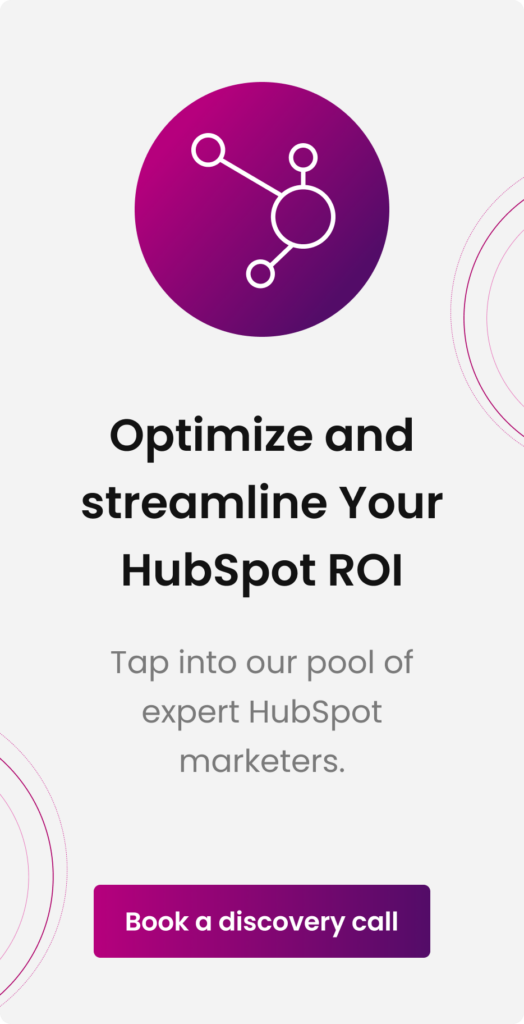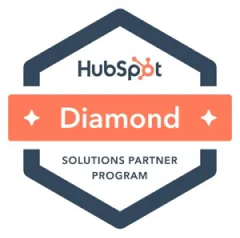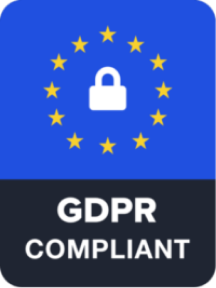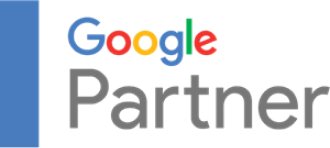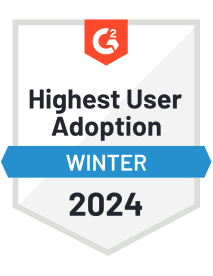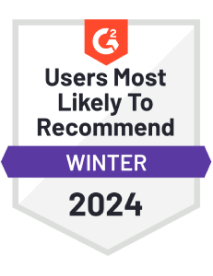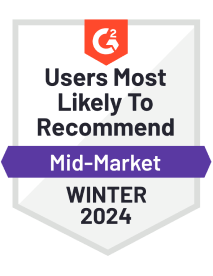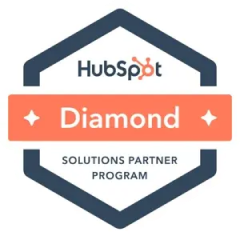In the rapidly evolving world of higher education, the CRM (customer relationship management) software market is a sector to watch. It’s projected to grow impressively, with an annual growth rate of 15.88%, and is expected to reach a market size of $4,387.97 million by 2027. This statistic reflects the increasing importance of CRM systems in educational institutions.
CRM for education is not just about managing data; it is pivotal in enhancing interactions and experiences for both students and staff. These systems play a crucial role in organizing and utilizing information efficiently, from handling student details to administrative records.
The impact of CRM for education extends beyond data management. It fosters improved engagement, boosts productivity, and ensures transparency within educational institutions. CRM systems are integral from the moment a student considers enrollment, throughout their educational journey, and even after graduation.
Choosing the right CRM for an educational institution is a nuanced decision. It involves considering the institution’s specific needs, the accessibility of staff, and the desired level of digital integration.
This blog aims to explore the essentials of CRM for education, highlighting its significance and impact on the student lifecycle. We will provide insights into the top CRM choices for 2024, focusing on their quality, features, and affordability.
What is a CRM for Education?
A CRM for education is a specialized tool designed to manage and improve the interactions between schools, colleges, or universities and their various stakeholders, including students, parents, staff, and alumni.
This system plays a crucial role in overseeing the entire student lifecycle, from enrollment to alumni relations, integrating seamlessly with other essential educational tools.
The Top Benefits of a CRM for Education
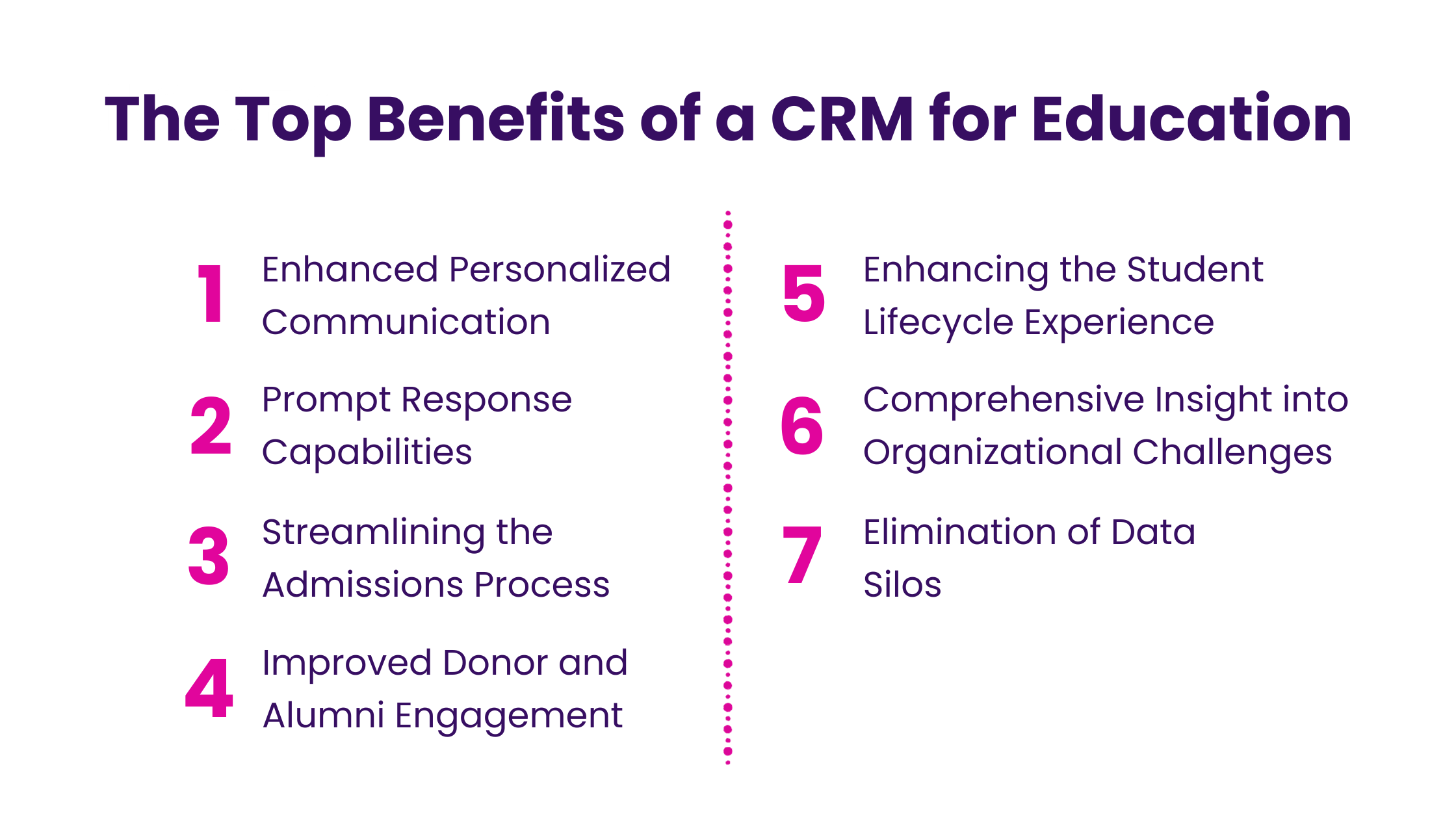
The Advantages of Implementing CRM for Education
1. Enhanced Personalized Communication
CRM for education facilitates tailored communication strategies. Institutions can provide targeted information and assistance by tracking student interactions across various platforms.
These CRMs deal with personalized communication with departments, ensuring students receive relevant information about their courses or majors.
2. Prompt Response Capabilities
Quick responses to inquiries are vital in education. CRM for education allows institutions to respond swiftly to prospective students’ queries through integrated communication tools. This feature supports numerous integrations for efficient communication.
3. Streamlining the Admissions Process
The admissions process becomes more efficient with CRM for education. It reduces the reliance on paperwork and manual processes, allowing applicants to submit their information digitally. This improves the user experience and centralizes data for easy access by administrative staff.
4. Improved Donor and Alumni Engagement
Managing relationships with donors and alumni is another critical aspect of CRM for education. These systems track donations and interactions, aiding in acknowledging contributions and managing fundraising campaigns.
CRM tools offer functionalities to maintain detailed records and communicate with donors and alumni.
5. Enhancing the Student Lifecycle Experience
CRM for education benefits students throughout their academic journey. Institutions can identify and support at-risk students by monitoring various data points, improving retention rates. Additionally, engaging with alumni through CRM systems can aid recruitment and networking efforts.
6. Comprehensive Insight into Organizational Challenges
A well-integrated CRM for education provides a holistic view of an institution’s operations. It combines data from various departments, offering insights into overall performance and identifying areas for improvement.
7. Elimination of Data Silos
CRM for education ensures that information from different departments is consolidated, promoting transparency and collaboration within the institution. This centralized approach allows for more informed decision-making and strategy development.
CRM for education offers a range of benefits that can significantly enhance the efficiency and effectiveness of educational institutions.
Why Traditional Spreadsheets Fall Short?
The need for a specialized CRM for education is undeniable in the bustling world of educational management. While tools like Excel and Notion are handy for various tasks, they fall short regarding the specific demands of managing educational relationships and processes.
Let’s explain why these tools can’t replace a dedicated CRM for education.
The Shortcomings of Spreadsheets in Educational CRM Roles
- Challenges in Centralizing Data: All student information in one place is crucial in education. With its separate spreadsheets, Excel struggles to offer a unified and structured data view, a fundamental feature of any CRM for education.
- Automation is Key, and Spreadsheets Lack It: One of the biggest perks of a CRM for education is its ability to automate routine tasks. Think automated reminders or updating records – tasks that are essential in education but require manual effort in Excel. This lack of automation is a significant drawback.
- Communication Tools are a Must: Effective communication with students, parents, and staff is vital. A CRM for education typically includes built-in tools for automated emails and reminders. Excel, on the other hand, doesn’t support these features, making consistent communication a challenge.
- Growing Pains with Spreadsheets: As an institution expands, so does its data. Excel and Notion can become overwhelmed with large data volumes, leading to slower performance and increased errors. A CRM for education, however, is built to scale with your institution’s growth.
- Limited Reporting and Analytics: Understanding student performance and engagement trends is essential. While CRMs for education offer advanced reporting and analytics, Excel requires manual effort to create meaningful reports, which can be time-consuming and prone to errors.
While spreadsheets like Excel and Notion are useful tools, they lack the specific functionalities and scalability that a CRM for education offers.
Investing in a dedicated CRM system is wise for educational institutions looking to streamline their processes and improve communication and data management.
The Essential Features of CRM for Education
CRM for education has emerged as a pivotal tool in the dynamic landscape of educational management. This system is designed to streamline various administrative and academic processes within educational institutions.
By integrating CRM for education into their operations, schools, colleges, and universities can significantly enhance their efficiency and effectiveness in managing student and stakeholder relationships.
The Key Features of CRM for Education
- Comprehensive Student Information Management
A core feature of any CRM for education is its ability to manage detailed student profiles. This includes demographic information, enrollment history, academic records, and contact details, ensuring a centralized database for all student-related information.
- Streamlined Enrollment Tracking
CRM for education simplifies the enrollment process. From initial lead generation to application, acceptance, and final enrollment, the CRM system ensures a smooth transition at each stage, enhancing the experience for both students and administrators.
- Academic Progress Monitoring
Keeping track of students’ academic performance is crucial. CRM for Education Systems offers tools to monitor grades, attendance, and behavioral records, providing educators with valuable insights into student progress.
- Effective Communication Tools
Communication is key in educational settings. CRM for Education facilitates this by providing various channels, such as email, SMS, and other platforms, to maintain constant contact with students, parents, staff, and alumni.
- Event Management Capabilities
Organizing events like open days, reunions, and fundraising activities is made easier with CRM for Education. These systems help plan, execute, and track such events’ success.
- Fundraising and Donor Management
Managing fundraising efforts and maintaining relationships with donors is another aspect where CRM for Education proves invaluable. It assists in tracking donations and organizing fundraising campaigns.
- Insightful Reporting Tools
To make informed decisions, educational institutions need access to data-driven insights. CRM for Education offers dashboards and reporting tools that provide a comprehensive view of operations, aiding in strategies that support student retention and institutional growth.
- Integration with Educational Systems
A significant advantage of CRM for education is its ability to integrate with other educational systems, such as learning management systems (LMS), student information systems (SIS), and finance and accounting systems. This integration ensures a seamless flow of information across various departments.
- Customization and Adaptability
Recognizing the unique needs of each institution, CRM for Education offers customizable features. Administrators can tailor data fields, user interface elements, and reports to align with specific institutional requirements. This flexibility is crucial for globally operating institutions, as it supports multi-currency and multi-language functionalities.
CRM for Education is not just a tool but a comprehensive solution that addresses various aspects of educational management. From student admissions to alumni relations, its features are designed to enhance the efficiency and effectiveness of educational institutions, making it an indispensable asset in today’s academic environment.
CRM For Education: Top 5 Platforms
I. HubSpot
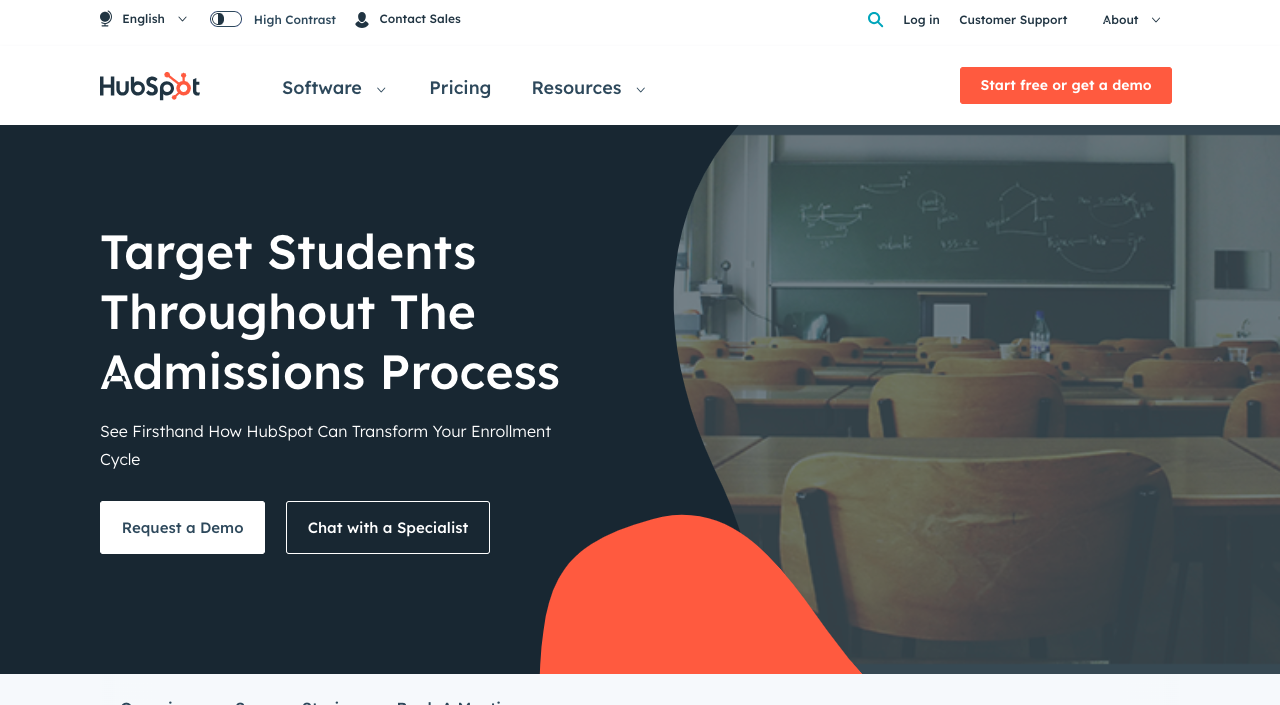
Source: HubSpot
Email Tracking: HubSpot CRM’s email tracking functionality allows educational institutions to monitor how recipients interact with their emails. This feature provides immediate feedback on email opens and clicks, offering valuable insights into the effectiveness of communication strategies.
Understanding these engagement patterns helps refine email content and timing, ensuring messages resonate more effectively with students, parents, and staff.
Marketing Automation: The marketing automation feature in HubSpot CRM is designed to streamline marketing efforts in the educational sector. It allows easy integration with third-party sales and marketing tools, creating a cohesive and efficient campaign management system.
This integration is crucial for automating repetitive tasks, such as sending out newsletters or event notifications, freeing up valuable time for staff to focus on more strategic initiatives.
Meeting Scheduling: The meeting scheduling feature in HubSpot CRM is a boon for educational administrators and faculty. It simplifies setting up meetings, from one-on-one student-advisor sessions to larger faculty meetings.
This tool is integrated directly into the dashboard, making managing and coordinating schedules easy.
Calendar Integration for Conflict-Free Scheduling: HubSpot CRM’s compatibility with popular calendar applications is a significant advantage. It helps minimize scheduling conflicts and ensures smooth coordination of meetings across various departments and time zones.
II. Monday Sales CRM
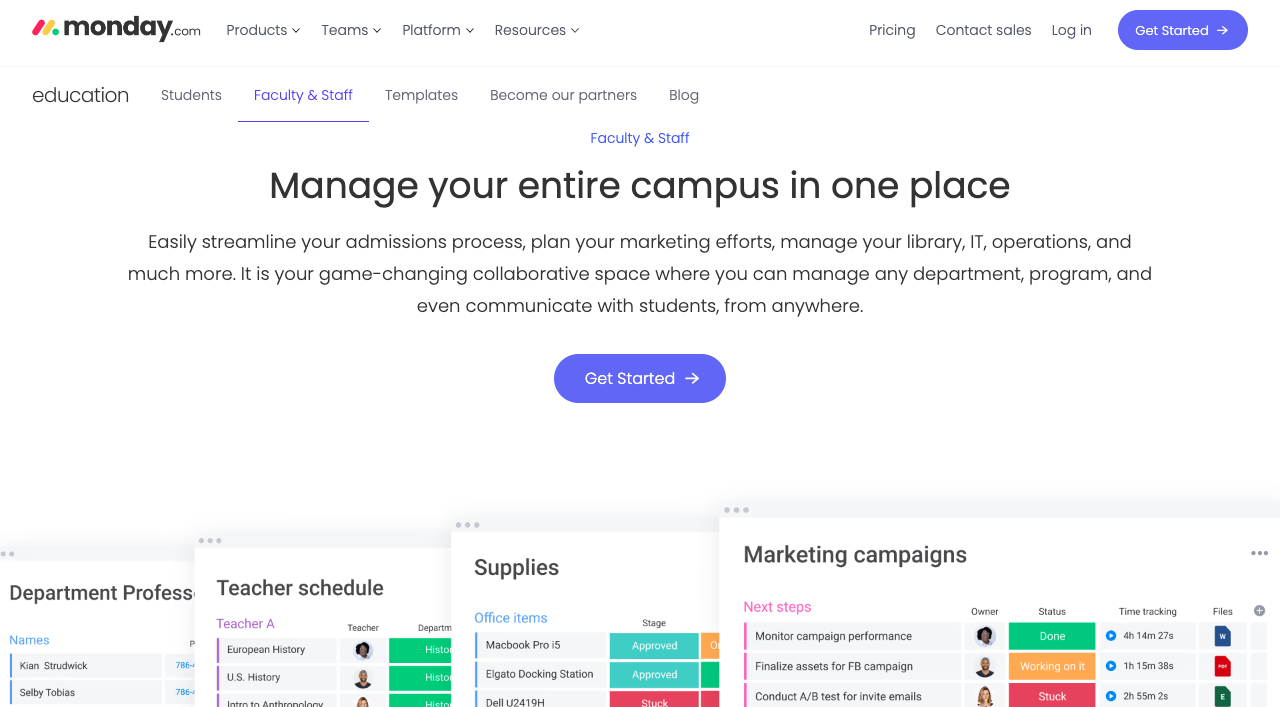
Source: Monday Sales CRM
Robust Integration Capabilities: One of the most significant strengths of Monday Sales CRM is its ability to integrate with over 72 third-party applications. This extensive integration capacity allows educational institutions to centralize their data management, ensuring that all information, from student records to administrative details, is accessible in one place.
This feature particularly benefits schools and universities looking to streamline operations and improve data consistency across various departments.
Mobile Accessibility for On-the-Go Management: Monday Sales CRM addresses this need with its user-friendly mobile applications for both iOS and Android devices. This mobile accessibility ensures administrators and faculty members can stay connected and manage tasks efficiently, regardless of location.
Customizable Workflows for Tailored Use: Recognizing that each educational institution has unique needs, Monday Sales CRM offers customizable workflows, templates, and views. This flexibility allows schools and universities to tailor the CRM system to their specific requirements, enhancing efficiency and user experience.
Whether tracking student admissions, managing faculty schedules, or organizing events, Monday Sales CRM can be adapted to suit various administrative and academic processes.
III. Salesforce Education Cloud
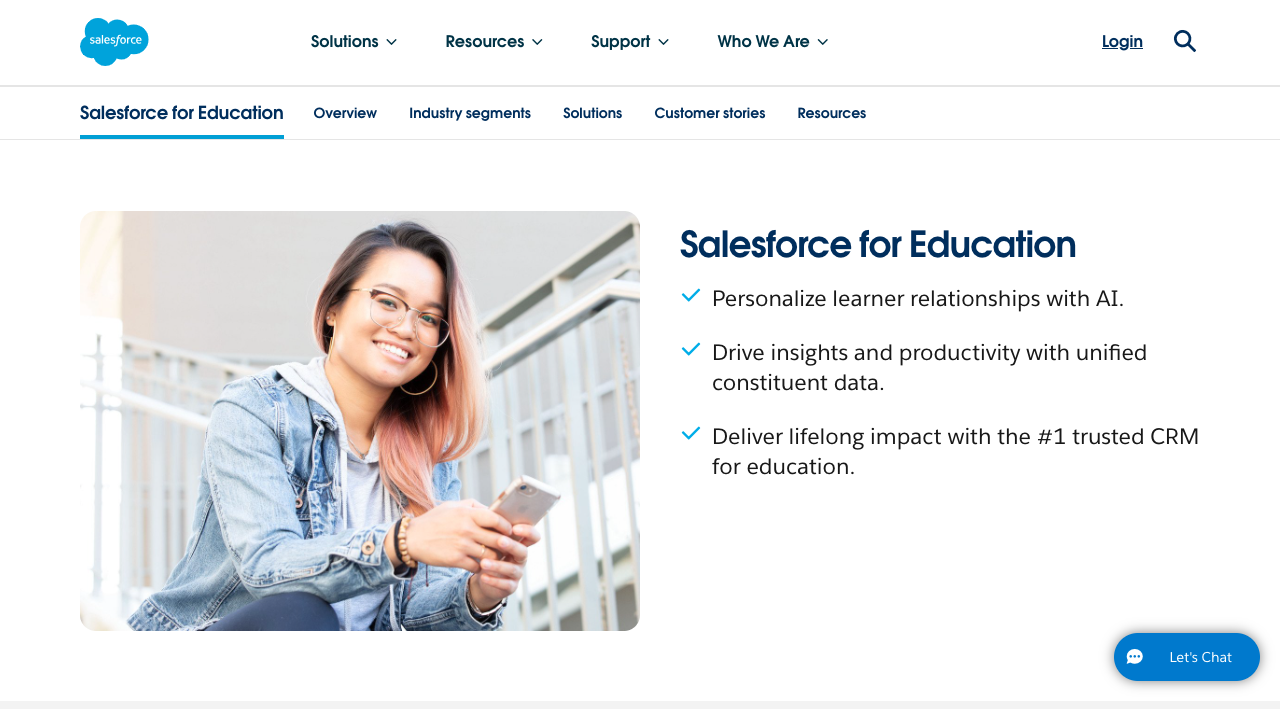
Source: Salesforce
Comprehensive Student and Faculty Management: Salesforce Education Cloud provides a comprehensive digital management system. This feature allows for a smooth transition to a cloud-based platform, facilitating efficient student and faculty information management.
It streamlines processes such as enrollment, academic tracking, and faculty administration, making it easier for institutions to manage their day-to-day operations.
Advanced Engagement Tools for Insightful Interactions: The platform offers a range of tools to enhance student engagement. By providing insights into student interactions, Salesforce Education Cloud helps institutions tailor their educational campaigns and outreach efforts more effectively.
This feature is crucial for understanding student needs and preferences, improving the educational experience.
Seamless Education Data Architecture: A key feature of Salesforce Education Cloud is its seamless integration of various data points to create a unified educational experience. This architecture ensures that students remain connected to all aspects of college life, from academic progress to extracurricular activities.
It provides a holistic view of the student journey, aiding in better decision-making and student support services.
IV. Element 451
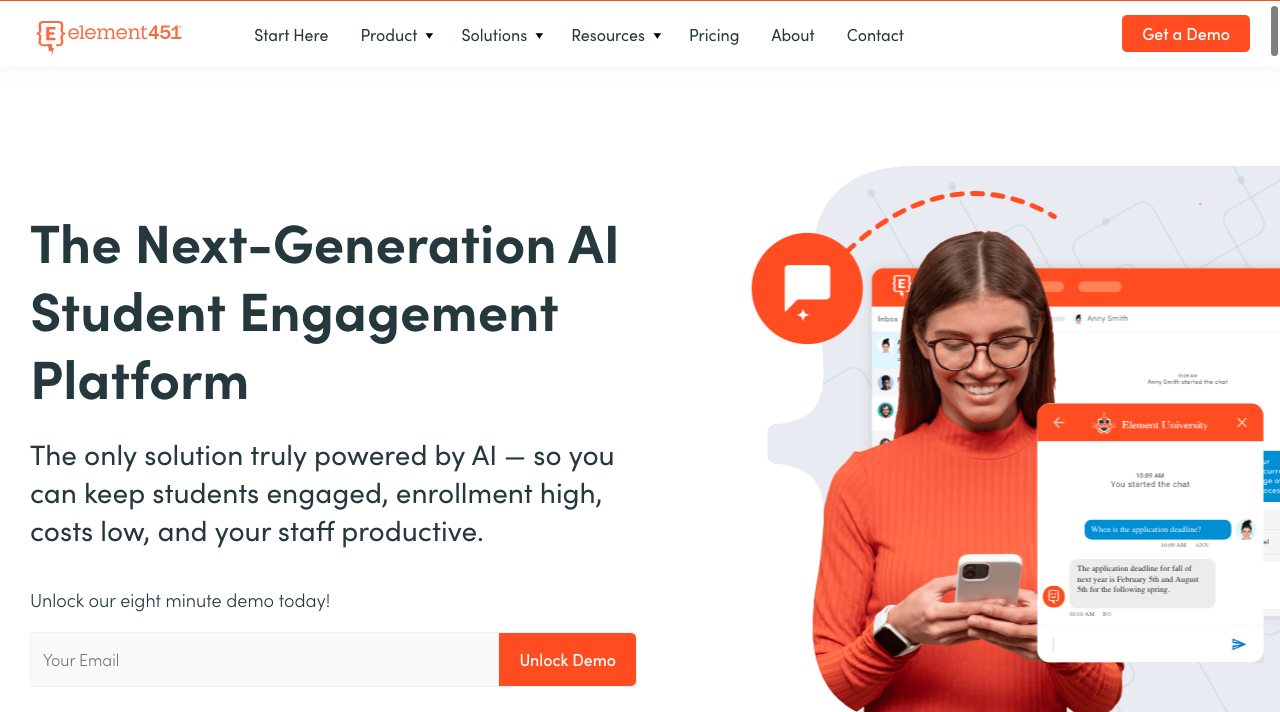
Source: Element 451
Personalized Marketing for Targeted Outreach: Element 451 allows institutions to tailor their marketing efforts. Colleges can create more personalized and effective marketing campaigns by segmenting messages based on specific criteria, such as student interests or demographics.
This targeted approach ensures that prospective students receive relevant information, enhancing the likelihood of their engagement and enrollment.
Comprehensive Analytics for Informed Decisions: The platform offers robust analytics tools to track and understand student engagement and trends. These insights are crucial for admissions teams to identify what strategies are working and where adjustments are needed.
By analyzing data on student interactions, institutions can refine their outreach and improve the overall effectiveness of their enrollment strategies.
Seamless Data Integration for Unified Processes: Element 451’s ability to integrate data from multiple channels into a cohesive process is a significant advantage. This feature ensures that all aspects of the enrollment journey, from initial inquiry to final admission, are connected and streamlined.
The unified process saves time and provides a more organized and pleasant experience for prospective students.
V. Zoho CRM
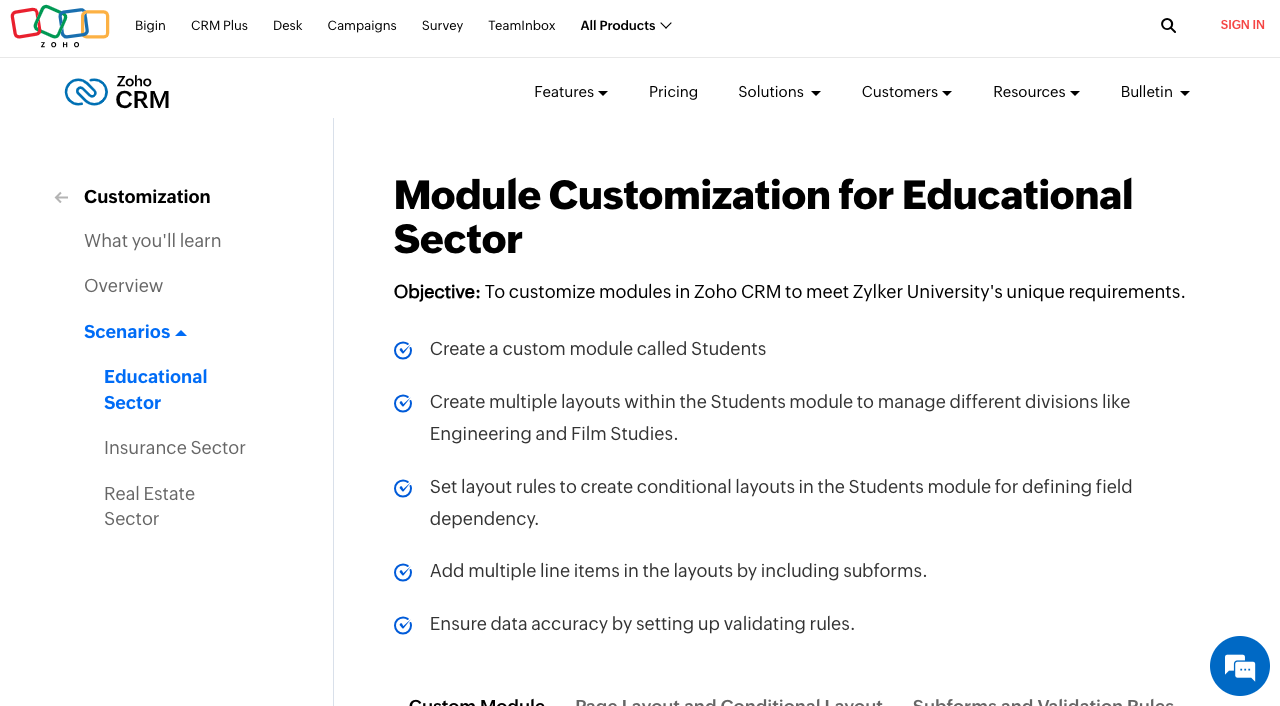
Source: Zoho CRM
Efficient Lead and Contact Management: Centralizing information is crucial in educational administration, and Zoho CRM’s lead and contact management feature addresses this need effectively.
It allows institutions to store and manage student, staff, and donor data in one central location. This centralized database is essential for maintaining organized records and ensuring easy access to information when needed.
Forecasting for Strategic Planning: The forecasting feature in Zoho CRM is particularly useful for tracking admissions and planning resources.
Using pipeline management, institutions can predict future admission trends, helping them allocate resources more efficiently and plan for upcoming academic cycles.
Social Media Integrations for Enhanced Engagement: Zoho CRM’s integration with social media platforms enables institutions to manage and monitor student interactions across these channels.
This feature is key to understanding student needs and preferences and engaging with them effectively on platforms they frequently use.
These platforms are not just tools for data management; they are comprehensive solutions that enhance every aspect of the educational experience.By adopting these innovative solutions, schools, colleges, and universities can expect to see marked improvements in engagement, productivity, and overall institutional success. As we move forward, CRM for Education will undoubtedly continue to play a pivotal role in shaping the future of educational administration and student management.
Unlock Your Business Potential With Expert HubSpot Support!
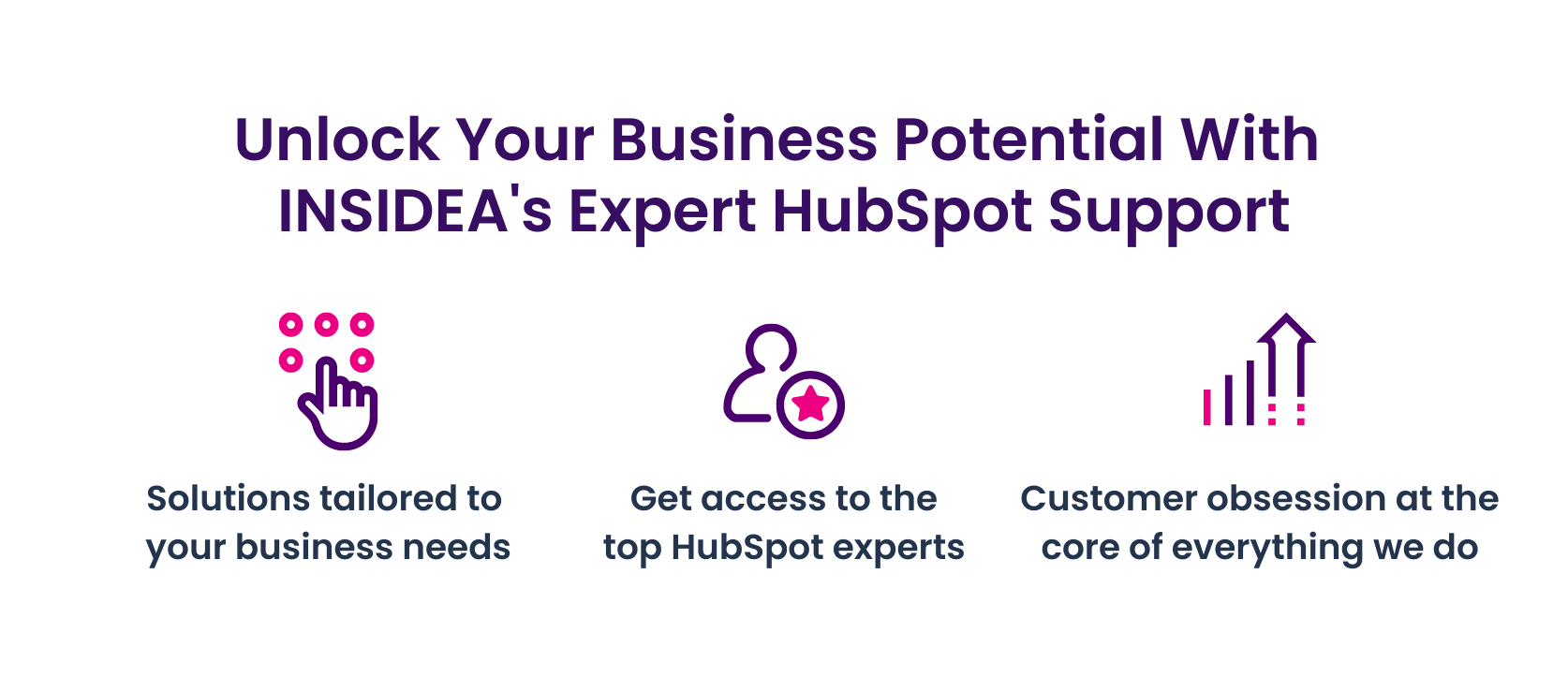
As a HubSpot Solutions Partner we take pride in assisting you with streamlining your HubSpot efforts. With our best-in-class marketing, sales, and service solutions, we help you scale exponentially.
INSIDEA’s HubSpot Specialists have the required in-depth knowledge and can provide you with expert guidance on how to use the platform to meet your specific business needs.
Get in touch today to learn more about how INSIDEA can help you succeed!
- Tailored Experience: For us, user experience is the primary focus. Thus, INSIDEA works with you to ensure your HubSpot experience is tailored to your business needs.
- Industry Expertise: Our team specializes in the setup, implementation, and optimization of HubSpot tools, as well as being well-versed in HubSpot best practices to ensure your business has the highest ROI possible.
- Customer Obsession: For us, customer satisfaction is the key to success, and we strive to ensure that our customers’ needs are not only met but exceeded every time.
At INSIDEA, we understand the importance of valuable HubSpot strategies that understand your target audience and drive conversions. Book a meeting with our HubSpot experts to explore how we can help you with your upcoming projects.
Get started now!





